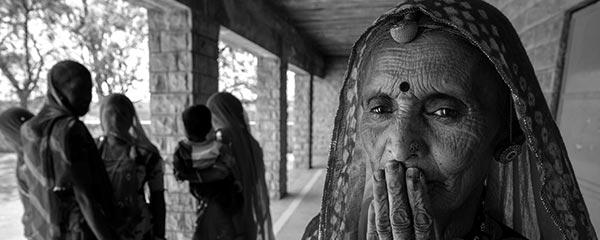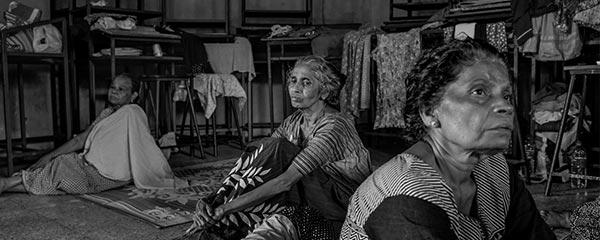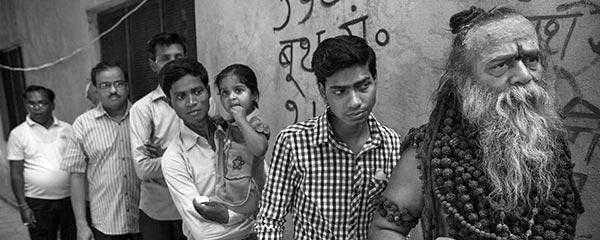Story Highlights
- Less than half of Indians say local economic conditions are getting better
- Rural Indians more optimistic than urban residents about economy for the first time
- 41% of Indians say now is a good time to find a job in their local area
WASHINGTON, D.C. -- While the 49% of Indians who say their local economy is getting better is on the low side for Prime Minister Narendra Modi's first term, the generally positive economic outlook among most Indians should bode well for Modi and the Bharatiya Janata Party (BJP) in the current election.

The findings from Â鶹´«Ã½AV's survey in India in October-December 2018 suggest the recent decline in Indians' economic optimism has not hurt their evaluations of Modi's job performance ahead of India's current election. Indians who say local economic conditions are getting better are only slightly more likely to approve of Modi (69%) than are those who say economic conditions are getting worse (63%). The BJP won an absolute majority in 2014 partly by campaigning on large-scale economic reforms.
Throughout much of Modi's tenure, the majority of Indians have been optimistic about the direction of local economic conditions, including hitting a record high in 2016 and staying there in 2017. The recent slip in Indians' economic optimism mirrors India's economic slowdown: GDP growth fell to 6.7% in 2017 from a high of 8.2% in 2015.
Economic Optimism Loses Steam in Urban and Rural Areas
Both urban and rural Indians are less likely than they were in 2017 to believe their local economy is getting better. Changes in economic perceptions are particularly stark among India's urban population: 43% of urban residents now say local economic conditions are getting better, down from 68% in 2016, which was a record high under Modi.

For the first time, rural Indians (50%) are more likely than urban residents (43%) to say their local economy is getting better. Despite the extensive concern about the persistence of rural distress in India, this finding shows rural residents now maintain a more positive view about the direction of their local economy than do their urban counterparts. Some have suggested that urban India has been particularly affected by the launch of a goods and services tax (GST). The GST has slowed commerce, the backbone of most Indian cities' economies. This may partially explain why nearly triple the number of rural Indians say their local economy is getting better than getting worse (18%), while optimism has declined in urban areas.
Labor Markets Becoming Tough in India's Cities
Indians are also seeing a more difficult job market. Less than half of Indians (41%) said in 2018 that now is a good time to find a job in the city or area where they live, down slightly from 44% the previous year. Younger Indians between the ages of 15 and 29 continue to be the most positive of all age groups about job prospects (45%), which is a positive sign for employers looking to fill jobs. However, 32% of older adults (aged 50 and older) say that now is a good time to find a job and 49% say it is a bad time.
Labor markets have become particularly difficult in urban areas, with the percentage saying it is a good time to find a job dropping 18 percentage points since 2016. Evaluations of the job market have been more consistent in rural areas, and nearly as many rural Indians have positive views of their local job market as urban residents do. The recent decline in job market conditions for urban residents may partially explain why Modi's approval ratings are lower in India's urban areas.

Modi and the BJP campaigned on expanding employment in the country during India's previous election. Indians have seen some progress on this front over the past five years. Both rural and urban Indians are slightly more likely to positively evaluate their local job market in 2018 compared with when Modi first took office in 2014.
India's Poorest Lack Basic Needs as Income Support Proposed
Given the gradual slowdown that has occurred in India, some politicians and economists have recommended government interventions to more quickly improve living conditions, particularly among the country's poorest residents. Specifically, income support programs -- or direct payments to residents -- have become increasingly popular. The Indian states of Odisha and Telangana have recently implemented direct cash transfers to farmers.
India's two main parties proposed similar programs ahead of the election. In January, Modi and the BJP unveiled a plan to provide 6,000 rupees a year (approximately $85) to farmers. Recently, the BJP's primary rival, the Congress Party, announced a plan to provide 72,000 rupees a year (over $1,000) to the poorest 20% of India's households.
Residents who would receive assistance under the Congress Party's proposal, those in the poorest 20% of households, currently face a significant lack of access to basic needs. In 2018, nearly half of these residents said they did not have enough money for adequate shelter or housing in the past year. Furthermore, 56% of these residents said they did not have enough money to buy food in the past year.
| Poorest 20% | Second 20% | Middle 20% | Fourth 20% | Richest 20% | |||||||||||||||||||||||||||||||||||||||||||||||||||||||||||||||||||||||||||||||||||||||||||||||
|---|---|---|---|---|---|---|---|---|---|---|---|---|---|---|---|---|---|---|---|---|---|---|---|---|---|---|---|---|---|---|---|---|---|---|---|---|---|---|---|---|---|---|---|---|---|---|---|---|---|---|---|---|---|---|---|---|---|---|---|---|---|---|---|---|---|---|---|---|---|---|---|---|---|---|---|---|---|---|---|---|---|---|---|---|---|---|---|---|---|---|---|---|---|---|---|---|---|---|---|
| % | % | % | % | % | |||||||||||||||||||||||||||||||||||||||||||||||||||||||||||||||||||||||||||||||||||||||||||||||
| Unable to afford food at times in the past 12 months | 56 | 38 | 42 | 30 | 29 | ||||||||||||||||||||||||||||||||||||||||||||||||||||||||||||||||||||||||||||||||||||||||||||||
| Unable to afford shelter at times in the past 12 months | 49 | 38 | 35 | 26 | 25 | ||||||||||||||||||||||||||||||||||||||||||||||||||||||||||||||||||||||||||||||||||||||||||||||
| Â鶹´«Ã½AV World Poll, 2018 | |||||||||||||||||||||||||||||||||||||||||||||||||||||||||||||||||||||||||||||||||||||||||||||||||||
Bottom Line
India is on pace to become the world's fifth largest economy in 2019, behind only the United States, China, Japan and Germany. Under Modi and the BJP, GDP per capita has increased by more than 35%. Indians have maintained a positive outlook under their prime minister, though they have become less optimistic about the direction of their local economy and job market in recent years. Yet, the BJP seems immune to these declining assessments, with Modi garnering an approval rating above 60% even among those who say local economic conditions are getting worse.
The biggest liability for the BJP is in India's cities, where assessments of the economy have declined sharply. Urban residents are now less optimistic than rural Indians about local economic conditions for the first time. This coincides with lower approval ratings for Modi in urban areas. The BJP's overtures to farmers and rural residents through targeted income may only exacerbate the urban/rural divide in India, which will present challenges for the country's next government.



